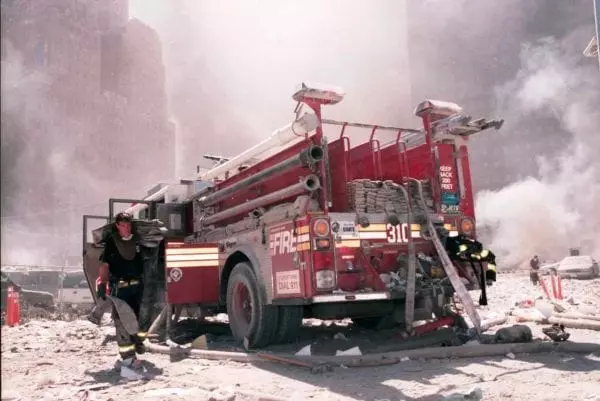
This year marks the 19th anniversary of the attacks on the World Trade Center. The effects of 9/11 continue as individuals grieve the loss of loved ones and suffer from emotional and physical impacts of the event.
First responders were strongly affected by 9/11. Many have faced and continue to face the physical impact of breathing in debris that erupted from the collapsed towers. Emerging conditions include mesothelioma, asbestosis, lung cancer and other serious diseases.
How Many First Responders Have Been Affected by 9/11?
It is difficult to document the number of first responders facing health effects from 9/11. The World Trade Center Health Program (WTC Health Program) provides data about those that have enrolled.
Over the past four years, enrollment of first responders has increased by around 13,800 individuals. Participants are seeking help with specialized healthcare. This includes monitoring, screening and/or treatment.
What Types of First Responders Were Involved With 9/11?
First responders enrolled in the WTC Health Program include general responders, New York City Fire Department (FDNY) responders and Pentagon/Shanksville responders. This includes firefighters, EMTs, police officers, rescue team members and many more.
Data from the Centers for Disease Control and Prevention (CDC) shows 58% of enrollees constitute general responders. This is 61,075 individuals. This does not account for those that have passed away.
By the end of August 2020, there were a recorded 227 FDNY deaths related to WTC illness.
–Data from the Uniformed Firefighters Association’s WTC Related Illness Deaths News Coverage
What Types of Conditions Result From 9/11?
First responders face a variety of physical and mental health conditions as a result of the attacks on the twin towers.
Cancers certified by the WTC Health Program include:
- Prostate
- Breast (female)
- Melanoma
- Non-melanoma skin cancer
- Lymphoma
- Thyroid
- Lung/Bronchus
- Kidney
- Leukemia
- Colon
- Bladder
- Myeloma
- Oropharynx
- Rectum
- Neuroendocrine
Other conditions certified by the WTC Health Program include:
- Chronic rhinosinusitis
- Gastroesophageal reflux disease
- Asthma
- Sleep apnea
- Post-traumatic stress disorder (PTSD)
- Chronic respiratory disorder
- Chronic obstructive pulmonary disease (COPD)
- Anxiety disorder
- Major depressive disorder
First Responders and Asbestos-Related Conditions
Asbestos causes or is linked to the following conditions:
- Mesothelioma cancer
- Ovarian cancer
- Laryngeal cancer
- Lung cancer
- Asbestosis
This list is non-exhaustive. Research continues to identify connections between asbestos exposure and the development of serious illnesses.
Asbestos was present at the disaster site and was in the resulting plume of smoke. Many first responders were dealing directly with asbestos-containing materials (ACMs) as they moved and dug through the rubble. They were also breathing in strong concentrations of the dust and debris in the air.
Higher concentrations of asbestos exposure and longer durations of exposure increase the risk of developing asbestos diseases. As a result, first responders make up a large portion of those battling asbestos conditions.
The Long-Lasting Impact of Harmful Exposure From the World Trade Center
Although 9/11 took place 19 years ago, many first responders are only now dealing with serious health effects. Some conditions, such as mesothelioma, have a long latency period. This means it can take decades for patients to recognize any symptoms.
First responders may not develop asbestos-related cancer until 10 – 50 years after exposure on 9/11.
Many patients are diagnosed with malignant mesothelioma at stage 3 or stage 4, when the disease has already advanced.
Programs such as the WTC Health Program may be able to improve prognosis for first responders. Frequent monitoring and screening may be able to detect early signs of cancer. Early detection often allows for more aggressive treatment options and an improved prognosis.
Help for 9/11 First Responders
First responders facing 9/11 health effects can seek help. The WTC Health Program is often a starting point. Responders can apply for the program and explore options for medical assistance.
There are also financial resources available. The 9/11 Victim Compensation Fund (VCF) was established to offer financial help to first responders dealing with 9/11 illnesses.
In July 2019, President Trump signed an important bill for the VCF. This instituted a permanent extension of VCF funding. The bill authorized an additional $10.2 billion for 10 more years (from when the bill was signed). It also provided funding until 2090. This is financial assistance for first responders for the rest of their lives.




